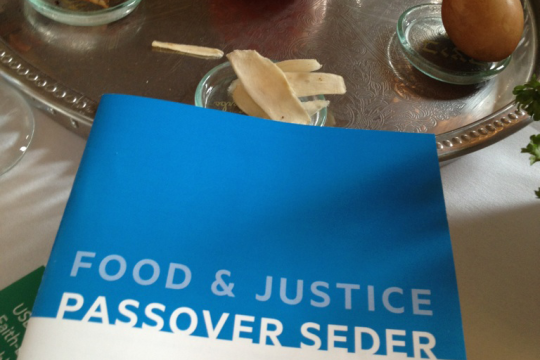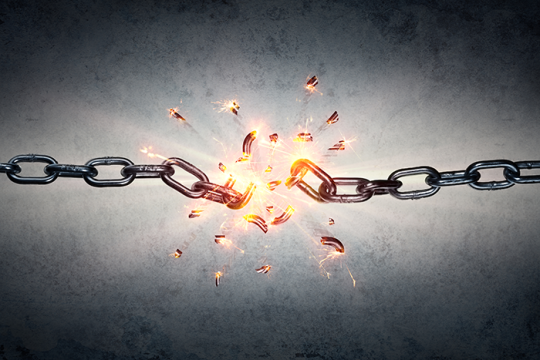
“Dimorphous expression” is the simultaneous display of contrasting emotions: for example, crying upon seeing an adorable baby or a cute puppy, screaming when a favorite performer is onstage, and at Purim, laughing in the face of tragedy.
Dimorphous expression is something at which we Jews excel.
Purim commemorates the rescue of Jews in the Persian city of Shushan. It’s unlikely this event ever took place, but it recalls too many times in our history when Jews have been persecuted for their religious identity. Whoever authored the Book of Esther felt it was time for us either to have a happy ending or, at the very least, to have a good laugh amidst so many unhappy endings.
The revelry that surrounds the celebration of Purim includes costumes, groggers, and imbibing enough alcohol ad lo yada (sufficient to confuse the names of Haman and Mordecai). It was only a matter of time before the Jimmy Fallon wannabees of medieval Europe started writing comic sketches that made greater fools of Haman and King Ahashverosh than even the Bible did.
Today, that tradition continues.
Come Purim, synagogues produce annual Purim spiels in which laypersons and Jewish professionals offer a bit of comedic acting and singing to complement the reading of the M’gillah (the scroll that contains the Book of Esther) and the consuming of hamantaschen.
Want to get in on the act? It’s easy. Here are six suggestions to get you going:
- Get yourself a copy of the Book of Esther. It’s in the section of the Tanach (the Hebrew Bible) called Ketuvim (Writings). This is your road map to a great spiel. The story is already excellent; you’re just going to spice it up.
- Many spiels have a theme. Anything from a popular film, television show, musical, cultural genre (sci-fi, politics) or even a body of music (the 50s, the Rolling Stones, Stravinsky) will do, but if a theme doesn’t work for you, just rewrite the story injecting as many jokes or silly routines as possible.
- While many spiel creators write specific roles for Esther, Haman, and the others, it’s not absolutely necessary. Especially if you’re not going to have a large cast (or you’re going to have a really large cast), you can write storytelling lines and spread them around among your cast members.
- Your spiel needn’t have additional songs. Goodness knows, there are plenty of traditional melodies already available to sprinkle throughout. But if you like, choose a bunch of tunes and rewrite the lyrics to fit your spiel. The most important guideline is to have fun writing them.
- Scatter m’gillah readings throughout your spiel, as well. I like to choose verses that mention Haman’s name a lot. That way, everybody’s listening for when to shake their groggers.
- Involve as many people as you can – as readers, actors, singers, instrumentalists, dancers, jugglers, backdrop painters, and in other ways that make sense to you. The more people involved, the more people who will come see them and, voila, the bigger your audience!
As a Jewish professional, I think Purim is the cruelest of all Jewish holidays. We’re expected to produce a completely different, successful comedy every year. For many of us, that’s infinitely more difficult than writing High Holiday sermons. But thankfully, there are kind souls out there who have already done the work, providing a much easier path to a great Purim spiel. Most will cost some money, but that’s what temple budgets are for, right? Check out these websites:
- Purimshpiels.com
- Purim Shpiels -R- Us
- Free Purim Shpiel Script
- An Original Musical Comedy Megillah by Norman Roth
- Dreskin Purimspiels
No matter how you go about producing your Purim celebration, don’t forget that it’s a religious imperative to make people laugh on Purim (or to die trying). Our world is filled with heartbreaking amounts of suffering and sadness. If we don’t laugh, we’ll be left only with our tears. Amidst so much trouble and difficulty, people who can laugh are people who can keep going. And people who can keep going are people who can help.
Our tradition commands us to care for those in need. After all the fun is over, Purim reminds us that brave people have always been – and continue to be – the reason justice prevails. Don’t be afraid to conclude your Purim spiel by challenging everyone – from the cast to the congregation, and from the backstage crew to the set painters – to go out and help beat back the Hamans in our world.
This may be the very reason Rabbi Elazar taught (in Midrash Mishlei 9:2) that should the messianic age of worldwide kindness and peace ever arrive, all but one Jewish holiday will be annulled. Purim will be celebrated forever.
So, this Purim, go make some people laugh. It might be a tad dimorphous in its expression, but it also might be a path to saving the world.
Have something to say about this post? Join the conversation in The Tent, the social network for congregational leaders of the Reform Movement. You can also tweet us or tell us how you feel on Facebook.
Related Posts

Passover 2024: The Three Central Messages of Pesach

Modern-Day Plagues of Injustice and Inequality

